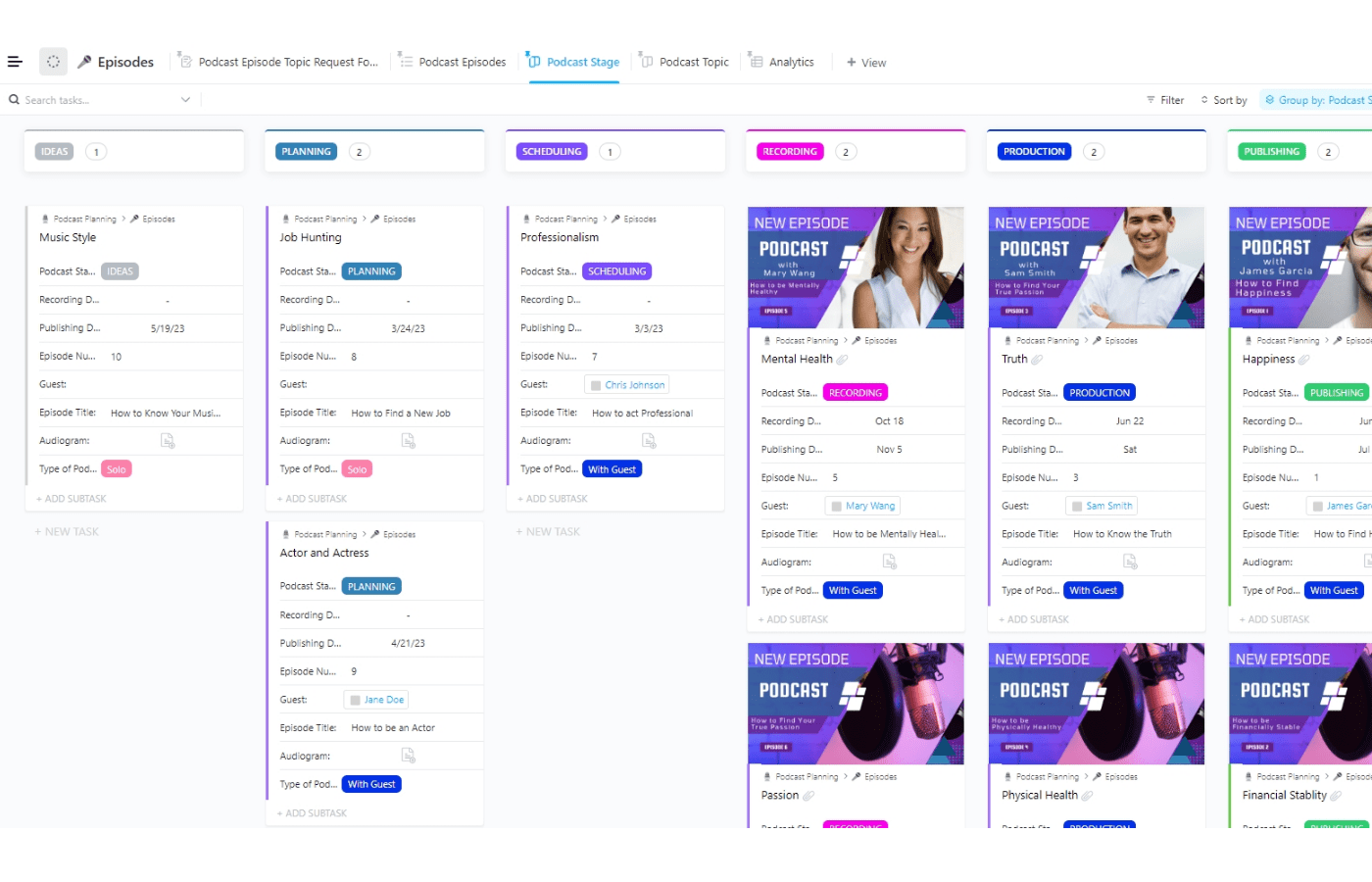MOST IMPORTANT QUESTIONS TO ASK
When it comes to successful project management, effective communication is essential. As a project manager, part of your role includes facilitating a company culture that encourages constant information exchange between you, your stakeholders, and your team. By knowing which project management questions to ask, you can be proactive in requesting the information necessary to ensure that the project is developing according to plan.
To do this effectively, you’ll need to master the art of asking thought-provoking questions and encouraging your project team members to request information as necessary. These skills can help you harness the collaborative power of your project team, and for remote or dispersed teams, encouraging this culture of open communication is even more important.
Read on as we have provided some of the most important project management questions to ask to enhance your team’s collaboration and ensure your project’s success.
4 Questions to Ask in Each Project Phase
Initiation phase
Who is the client, and what are we trying to help them achieve?
Knowing your client is the first step to knowing what they want. Therefore, it is helpful to perform research into your client’s business or organization. What are their business priorities, and what issues do they intend to solve through the execution of this project?
Understanding your client and their overarching goals will reveal insights into what your project’s objectives, deliverables, and success criteria should be. Once you have this information, you can begin to strategize accordingly and orient your team on a unified path.
Who are our stakeholders, and what are their roles regarding the project?
In project management, a project stakeholder can be anyone involved in the project’s development and execution. While we usually consider the project team and the client, other stakeholders can hold important roles that are vital to the process.
Identify these individuals to create a stakeholder register that includes relevant information about each stakeholder’s role, influence, designation, and other requirements that may be necessary to know throughout the following phases. This is especially helpful for keeping everyone aligned with communication.
What internal and external factors affect our client’s problem?
Projects aim to serve the purpose of solving a problem for your client. To understand how your team can make this possible, do your homework and study your client’s problem comprehensively. Gather any relevant data and conduct interviews if needed.
Remember, projects rarely exist in a bubble, and diving into these questions as early as during the external kickoff meeting can help you manage expectations and anticipate any factors that may affect your project’s effectiveness.
What is expected regarding communication channels?
In order to align everyone involved with the project’s development, communication is key. By this, I mean communication between team members, clients, and all types of stakeholders.
Discuss communication with clients and stakeholders to determine their expectations regarding project communication requirements and communication channels. This will make it easier to coordinate their execution when you enter the planning phase.
In addition, communication and alignment with your team throughout the following stages will be crucial to keep things running smoothly. But before you iron out your communication plan with your team, ensure that you get everyone’s buy-in regarding communication channels. The last thing you want is for them to hold a grudge every time you call them in on meetings.
Planning phase
What is our budget baseline?
Your project’s budget can put significant constraints on your plans, which is why it is a vital consideration for building an execution roadmap. Begin by identifying the project budget as communicated by the client. Keep this figure in mind as you determine your methods of executing it and the resources required.
Identifying the budget baseline will help you to determine the project resources that will be needed throughout the development process. Sometimes there are multiple means to an end, and multiple ways of feasibly completing a project, each requiring varying degrees of equipment, manpower, and materials. Having an understanding about finances will help you determine a plan to carry out the project without overspending.
Do we have existing skill sets and resources that can help us with this project?
Inventorying what’s available to you can help you avoid redundant and unnecessary tasks moving forward. To maximize existing resources, begin by identifying them. Ask if there are any projects or research your clients may have done in the past, as these may reveal information that can support your team’s efforts.
Don’t forget to leverage your team’s man-power as well. Fostering collaboration is part of the stages of team development, so it is highly essential that you are aware of what your team is capable of. Check if any members possess existing skill sets that can be valuable for the project’s development. Ask and consider whether you have seasoned members with insight and experience on certain aspects of your project. These may help you cut down costs that would be spent on excess resources, and diminish the time required to complete the work.
What parts of the plan and estimates are we confident and not confident about?
Data points are more important than feelings, but you shouldn’t completely discount what your gut is telling you and your team. First-hand experience can provide a lot of insight about the most efficient way to carry out a project, and your team may be holding on to some ideas or concerns that could influence the trajectory of your project plan.
Additionally, seeking the opinions of your team members will help foster a collaborative culture. Taking the initiative to encourage transparency at this juncture builds trust in your approach and strengthens trust with each other.
What are the worst-case scenarios we might have to anticipate and prepare for?
Obstacles can slow down project plans or hinder their completion altogether. You and your team should always consider contingencies when in the planning phase.
Things in life rarely go as planned, and this is especially true in project management. Furthermore, the bigger your project is, the more blockers are likely to show up. Considering potential issues ahead of time can help you avoid them, or know how to address them should they arise.
Execution phase
Did you encounter anything unexpected you’d like to share with the team?
Unexpected situations can either be beneficial or detrimental to your success, but tackling them head on is always the best course of action.
Encourage your team to bring new findings and experiences to light, as they occur. Accessing this information about unexpected occurrences will not only help you foster a culture of open communication, but it will also help you assess how you can manage them or use them to your advantage.
How are you feeling about the project’s status?
When the going gets tough, it’s normal to start zeroing in on the looming deadlines and increasing pressure. But as a project manager, you’ll need to exert a conscious effort to check on your team.
Remember that you’re working with people, who will perform best in environments where they feel they can thrive. On the other hand, people can also experience burnout, which can hinder their progress and impede the execution of the project. The success of your project is entirely dependent on them, so do what you can to help them apply their best efforts.
What are your recent wins?
While it’s essential to address problems, it’s equally vital to affirm accomplishments. Take time to recognize successful deliverables and project milestones. Acknowledge team members who have done exceptional work. This can be a good incentive for them to maintain their performance and encourage others to follow suit.
How can we improve our workflows?
Despite your best efforts to plan ahead, sometimes you won’t know an issue will occur until it does. This is especially true for workflows, as unexpected problems can harm your team collaboration and your progress.
Encourage your team to provide their feedback on ways that workflows can be improved. Even if it isn’t possible to apply these changes to the current project, this information could help you refine your workflow plans for future projects down the line.
Monitoring and control phase
Are we fulfilling project deliverables according to the project timeline?
Your client will want to track your team’s progress through deliverables, as these can indicate the project’s status. As such, failing to submit project deliverables according to the timeline agreed upon by the client, or failing to meet the predetermined acceptance criteria, can indicate significant issues with your team’s operations.
Let your team members know that coming to you with concerns about deliverables is encouraged. When you’re informed of issues as they arise, you have a better chance of resolving any problems that may be impeding their progress.
Are we on track to completing the project as scheduled? If not, why?
Sometimes teams can recover after a few short delays, but this isn’t always possible. To avoid delayed project completion, track your team’s progress while they’re hard at work, to evaluate if everyone is using their time and resources wisely.
As the project manager, monitoring project developments against planned timelines will help you effectively lead and communicate about progress with stakeholders. Everyone else will be focused on their respective roles, so it will be important for you to keep tabs on the bigger picture. There are several project management software solutions you can use to do this effectively.
What support or additional resources do we need?
As you discover friction points in your work and processes, encourage your team to be vocal if they need additional support or resources. Odd as it may seem, asking for assistance isn’t always the first instinct, and persevering without help can cause additional delays. Instead, normalizing this communication can go a long way in building a culture of collaboration and teamwork.
How will the new requests affect the success, scope, and timeline?
Change requests might come as situations change. Before attempting to inject change requests within your current project development plans, take a moment to consider whether doing so would be worth the work that would be required. Evaluate the effort that these changes will require and compare this with the impact you’re expecting them to contribute.
It’s your job to stop scope creep. Failing to manage the project scope and requirements within the execution phase can extend the project timeline, put extra pressure on your team, and max out your designated budget. Ensure that any change requests are reasonable so that you can avoid these harmful effects.
Closing phase
Do our deliverables fulfill our clients expectations?
Your team should aim to produce deliverables that meet or exceed the expectations of your client. If the project had deliverables that were constantly fulfilled late or did not meet the client’s acceptance criteria, consider why this is and what can be done in the future to avoid these issues.
Perhaps this was due to a problem that could easily be resolved, or perhaps you and your team were overly ambitious when planning them. Assessing these possibilities will help you to make changes that will improve your future projects, resulting in smoother-sailing execution and more satisfied clients.
What did we do well? What did we not do well? What can we improve?
Taking the time as a team to regroup and evaluate how you took on your project is an excellent way to recognize accomplishments, address issues, learn from experience, and strategize for improvement. Gaining specific examples from team members will provide more information for you to use as a project manager, while helping them reflect on their own efforts as well.
What impact did our project have on our client’s goals?
When reflecting on your completed project, perform an objective assessment of the project’s success alongside your team members. Ask them about their recollection of their performance. Did the team meet all of the project objectives? How did achieving them improve your client’s business and organization?
This is also a good practice for boosting your team morale. By affirming your project team members’ efforts, you can help them see how their work has helped an important cause and communicate to them that their work is recognized and appreciated.
Have we learned any lessons that can be applied to future projects?
Every project that your team carries out should be an improvement compared to the last. Ask yourself and your team about what factors worked and which ones didn’t, and take note of this feedback during your next project’s planning phase. By assessing what you have learned throughout the process—and by asking these questions—you can determine what practices should be carried onward and applied to enhance your efforts for future projects.
Why It Is Important to Ask Project Management Questions
In the initiation phase
The outcome of your initiation phase dictates the fate of your entire project. At this stage, communications should be directed towards understanding objectives and addressing relevant issues for your stakeholders. The information gathered by asking questions throughout the initiation phase will help you form a better idea of the project’s feasibility so that you can establish clear expectations for you, your team, and your client.
In the planning phase
Once expectations are clear, the planning phase helps ensure you and your team have all the necessary skills, resources, and knowledge to achieve them. The questions that you ask within this phase will provide you with the information necessary to form a timeline and plans about resource allocation, risk management, and tasks required to effectively fulfill the project’s goals.
In the execution phase
During the execution phase, your team will begin to put forth effort so the project progresses according to plan. But as this is happening, you will need to start doing the difficult work of project management and must therefore stay on top of new and relevant information that comes up. This will help you foresee issues, adjust plans to resolve them, and spot opportunities for improvement.
In the monitoring phase
By asking essential questions within the monitoring phase, you can ensure that your team stays on track, and you stay in-the-know regarding their progress. As the team’s leader, you will need to stay informed about changes in schedule, resource utilization, risks, and team member performance so that you can facilitate adjustments as necessary and lead accordingly. Furthermore, you may need to provide stakeholders with updates regarding the project’s progress.
At the conclusion of the project
Asking questions within the conclusion phase will help you to wrap up the current project, and prepare for future ones. By identifying the lessons learned throughout the completion of this project, you can apply them to future ones. Doing so can help you and your team avoid past mistakes and have continuous improvement.
Free Downloadable Template
To help you get started on your next project, we prepared a template you can use as a checklist to make sure all questions are covered as you go along.
Bottom Line: Keeping an Open Line of Communication in Project Management
Project managers don’t always have all the answers, so don’t be afraid to ask them! Asking questions can help to open up lines of communication between all key members, improve collaboration, and keep everyone on the same page regarding the project’s development.
As a project manager, making sure that your team communicates is one of your core responsibilities. Asking the questions effectively will require leadership skills, patience, tact, and humility. But done right, it can have a massive effect in fostering a healthy culture that will pave the way to project management success.





